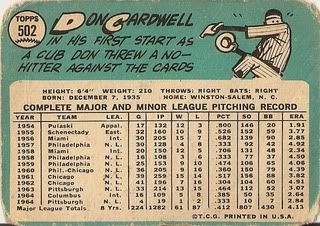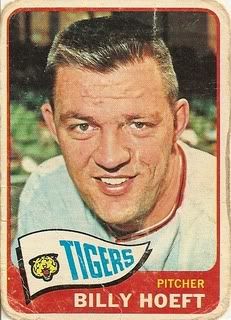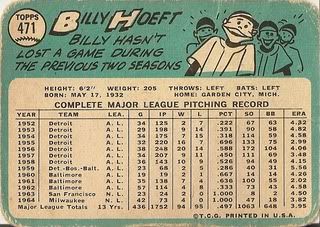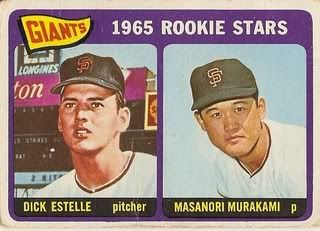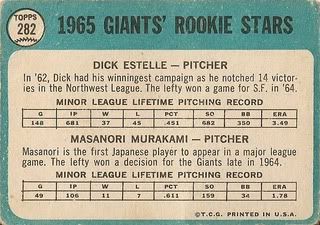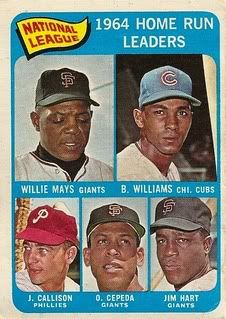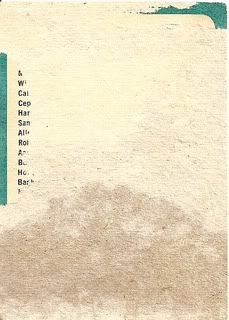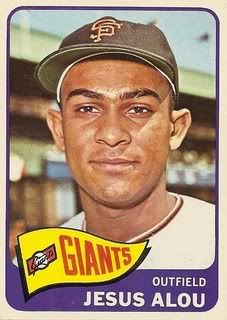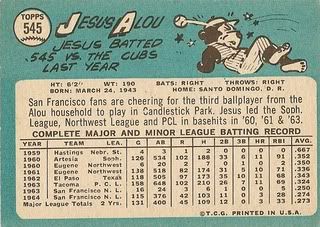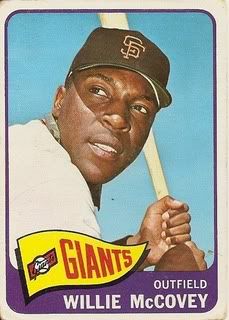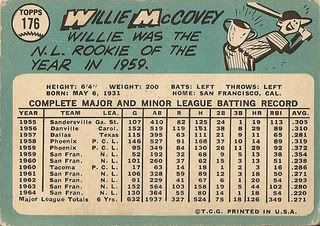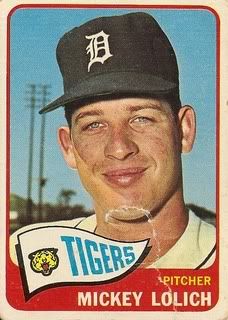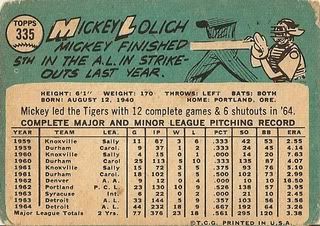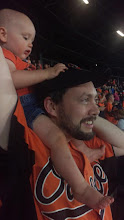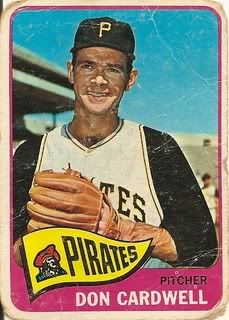
Fun facts about Don Cardwell:
-Don was born in Winston-Salem, NC and lettered in baseball, basketball, and football in high school before signing with the Phillies in 1954.
-He debuted with the Phillies in 1957, earning a save with three innings of competent relief against the Giants in his debut. On April 26, his first big league start was also his first career win, a four-hit shutout against those same Giants. He finished the year 4-8 with a 4.91 ERA.
-After a few more uneven seasons, Cardwell was traded to the Cubs in May 1960. He got his first starting assignment in the second game of a doubleheader vs. the Cardinals in Wrigley, and became the first (and to date, only) pitcher to throw a no-hitter in his team debut! Alex Grammas, the second batter of the game, drew a walk; that was the only blemish on Don's record that day.
-He was a workhouse for a bad Chicago club in 1961, going 15-14 with a 3.82 ERA and career highs of 13 complete games and 259.1 innings pitched. The Cubbies finished with 90 losses, and no other pitcher on the team topped 10 wins.
-After losing 16 games for the second time in 3 years in 1962, Don was traded twice that offseason: from the Cubs to the Cardinals and then to the Pirates. He rebounded nicely, posting a 3.07 ERA that put the lie to his 13-15 record. (The 74-88 Pittsburghers scored 3 runs or less in 20 of his 32 starts.)
-Arm troubles sidelined the righthander for most of the 1964 season, but he returned in 1965 with a 13-10 mark and a 3.18 ERA for the Bucs. It was his second and final big league season with a positive win-loss total.
-Don spent the later years of his career as an elder statesman on the burgeoning Mets staff after the Pirates dealt him in December 1966. His contributions to the 1969 "Miracle Mets" included an 8-10 mark and a 3.01 ERA as a swingman, and he posted a career-best 121 ERA+.
-Cardwell retired after getting knocked around for both the Mets and Braves in 1970. In parts of 14 seasons, he was 102-138 with a 3.92 ERA.
-He was no slouch with the bat, totaling 15 home runs in his career. His best individual season was 1960, when he batted .208 and slugged .416 with 5 homers and 9 RBI.
-After baseball, Don made his home back in North Carolina, working for Parkway Ford and excelling at golf with a handicap that was as low as single digits at one time. He passed away in January 2008 at age 72.
